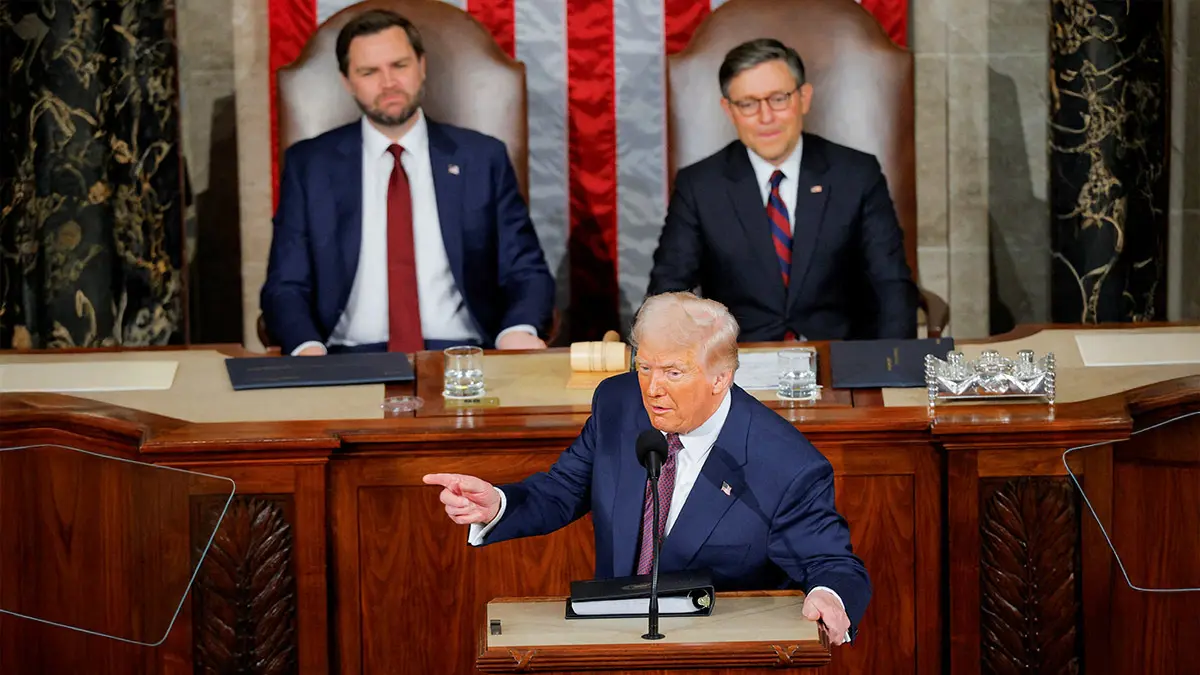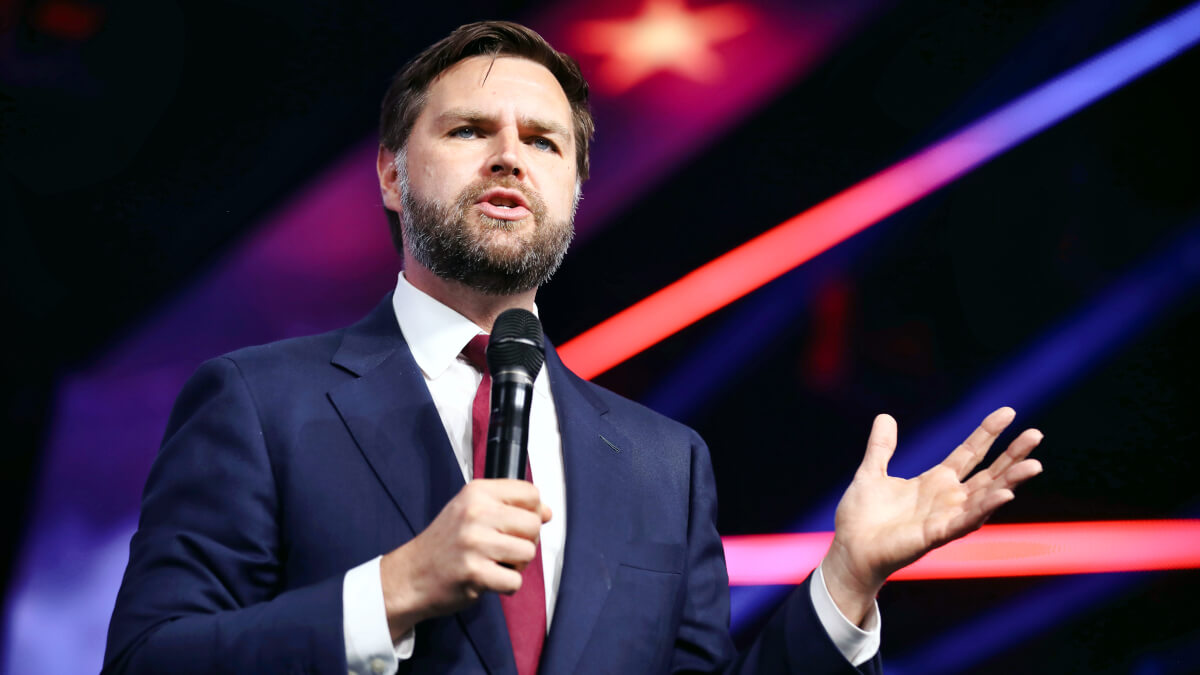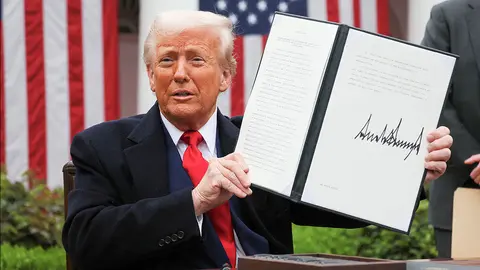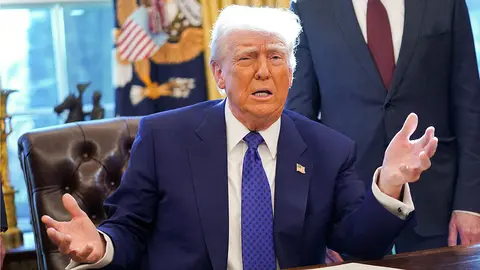Trump: 100 days in power

During the presidential campaign, Donald Trump promised to implement drastic changes from day one if he returned to the White House. What few anticipated was the speed and force with which he would begin to transform the United States.
For his supporters, this strategy demonstrates the character of a leader determined to act, keep his promises and implement long-awaited reforms. For his critics, however, it represents a dangerous overreach of power that threatens to permanently alter the constitutional balance of the country.
One of the most controversial moments came just three weeks into the administration. Vice President JD Vance posted on social media that ‘judges cannot control the legitimate power of the executive branch.’ The statement sparked a media storm and a wave of reactions in the legal community by questioning a principle more than two centuries old: the power of the courts to review and overturn government actions that violate the Constitution.
Vance's words represented a challenge to the system of separation of powers. And far from backing down, the White House has intensified its offensive: it has assumed powers belonging to Congress, such as control over spending, and has unilaterally eliminated funding for entire programmes and agencies.
Meanwhile, on Capitol Hill, Republicans—who hold narrow majorities in both chambers—have responded with mostly complicit silence. The courts, however, have shown resistance. According to a tally by The New York Times, more than 100 court rulings have already been issued blocking presidential actions on the grounds that they are unconstitutional.

Trump's actions, especially those aimed at dismantling parts of the federal apparatus, could take years — or even decades — to reverse, if a future president decides to do so. However, many of his reforms still lack legislative support, making them vulnerable to being overturned by his successors.
Moreover, the possibility of lasting change remains uncertain. Although Congress, with its fragile Republican majority, will try this year to pass legislation supporting Trump's agenda, next year's midterm elections could completely transform the political landscape.

Triumphalism in Michigan despite the polls
To mark his first 100 days, Trump held a rally in Warren, Michigan. For 90 minutes, he repeated his favourite campaign themes: immigration, the economy and patriotism. Despite having one of the lowest approval ratings for a president at this point in his term — between 40% and 45%, according to several polls — he was euphoric and optimistic.
‘These have been the most successful first 100 days of any administration in the history of our country,’ he proclaimed, surrounded by screens displaying the slogan ’100 Days of Greatness.’
His immigration policy remains the most popular among his voters. Forty-six per cent of Americans approve of his measures in this area, although nearly half believe he has gone too far in deporting undocumented immigrants, according to the AP.
Just 100 days in, President Trump’s economic policy is driving down inflation, gas, and grocery costs, while jobs boom, investments pour in, and America First proves it’s not just a slogan — it’s a winning formula.
— The White House (@WhiteHouse) April 29, 2025
Trust Trump. He’s delivering. 🇺🇸 pic.twitter.com/x7NHLNAlWZ
Arrests at illegal border crossings with Mexico have fallen dramatically, which Trump presented as a major achievement. ‘Removing invaders is not just a campaign promise. It is my solemn duty as commander-in-chief,’ he said.
Immigration policy has been the focus of much of the tension and controversy. In March, more than 200 Venezuelans were deported to El Salvador and held in the maximum-security Cecot prison without due process. The measure was justified under executive powers reserved for times of war. A Republican-appointed federal appeals judge said he was ‘shocked’ by the White House's actions and warned that the branches of government were ‘on the verge of an irrevocable collision.’
On the other hand, his economic policies have caused concern. His radical tariff plan has caused turmoil in the markets and been poorly received by the population: 57% of those surveyed in a CNBC poll believe that the United States is already in recession or heading towards one.

In addition to domestic policies, Trump has championed unprecedented expansionism. He has not ruled out military intervention in Greenland and Panama, has suggested transforming the Gaza Strip into a tourist destination and, in a move that bordered on the surreal, hinted at the possibility of annexing Canada.
Meanwhile, government cutbacks led by his advisor, businessman Elon Musk, have shaken Washington. All these measures have expanded the limits of the judiciary and challenged norms that had seemed untouchable since World War II.










